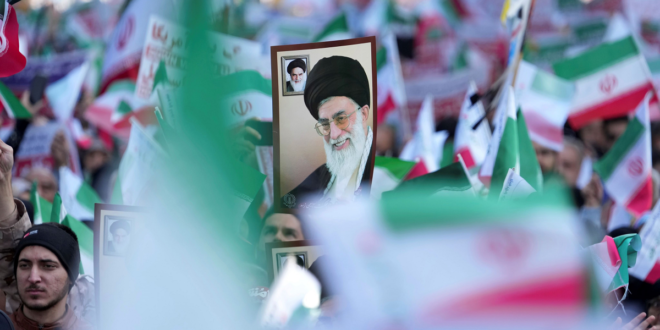Over the past decade, the struggle between Iran and Saudi Arabia for dominance in the Middle East has insinuated itself into nearly every regional issue, fracturing international alliances and sustaining wars across the region, while raising fears of a direct conflict between the two powers that could involve the United States. Now both sides seem to be seeking an offramp to confrontation, having recently agreed to reestablish diplomatic relations, amid a broader shift toward lowering tensions across the Middle East.
Saudi Arabia ramped up its regional adventurism after Mohammed bin Salman, the powerful son of King Salman known as MBS, was appointed crown prince in 2017. From the Syrian civil war to the Saudi-led war in Yemen, that has meant proxy conflicts with Iran-backed regimes and nonstate armed groups that have on several occasions veered dangerously close to direct hostilities between the two rivals. A precision missile and drone strike on Saudi oil facilities in 2019 was widely blamed on Iran. And the Trump administration’s confrontational approach to Tehran brought the U.S. and Iran to the brink of war in January 2020, with direct implications for Riyadh.
Since taking office, President Joe Biden has reengaged diplomatically with Iran in an effort to revive the 2015 multilateral nuclear deal that the Trump administration withdrew from. Though those talks have now stalled, they coincide with broader moves across the Middle East to mend ties that had been frayed by the region’s various arenas of conflict and competition.
Biden also promised to make respect for human rights a central pillar of his foreign policy. The potential implications for U.S. partners in the Middle East, particularly Saudi Arabia, are significant, although to date Biden has not radically changed Washington’s policies in the region. In 2022, he even visited the kingdom and met with MBS, despite having promised to make Saudi Arabia a pariah state, in an effort to rally Washington’s Gulf partners to the U.S. side in its standoff with Russia over the war in Ukraine. But tensions subsequently spiked over Riyadh’s alignment with Moscow to keep global oil prices high, despite pressure from Washington to increase production.
Yemen’s civil war has settled into a limbo of neither peace nor war, but with little amelioration of its humanitarian crises. Syria’s 13-year civil war has now entered an extended endgame that, though less bloody, remains every bit as volatile. Libya has seen a respite in its civil war since a cease-fire was implemented in October 2020 and a transitional government named in March 2021, but its political transition to elections has now hit an increasingly tense impasse. Above all, the absence of fighting in these countries by no means guarantees the establishment of lasting peace.
Meanwhile, Hamas’ attack on Israel on Oct. 7 and the ongoing war in Gaza serve as reminders that the conflict between Israel and Palestine cannot be simply wished away by regional powers and the United States. Like everything else in the region, this conflict had become entangled in the larger Saudi-Iran power struggle, with Saudi-allied leaders willing to remain silent on the Palestinian issue in return for Israeli support in containing Iran. And the U.S.-brokered diplomatic normalization deals Israel signed in the final months of the Trump administration with the United Arab Emirates and Bahrain had formalized a strategic realignment that had until then been an open secret in the region.
The question before the most recent conflict between Hamas and Israel had been whether Saudi Arabia would follow suit. But normalization with Israel without a final settlement of the Israel-Palestine conflict already seemed less likely before the war, due to the return of Prime Minister Benjamin Netanyahu at the head of a far-right government that repeatedly alienated Israel’s newfound partners in the Gulf. It has now become untenable in the face of the massive civilian casualties inflicted by Israel’s assault on Gaza.
 Eurasia Press & News
Eurasia Press & News




